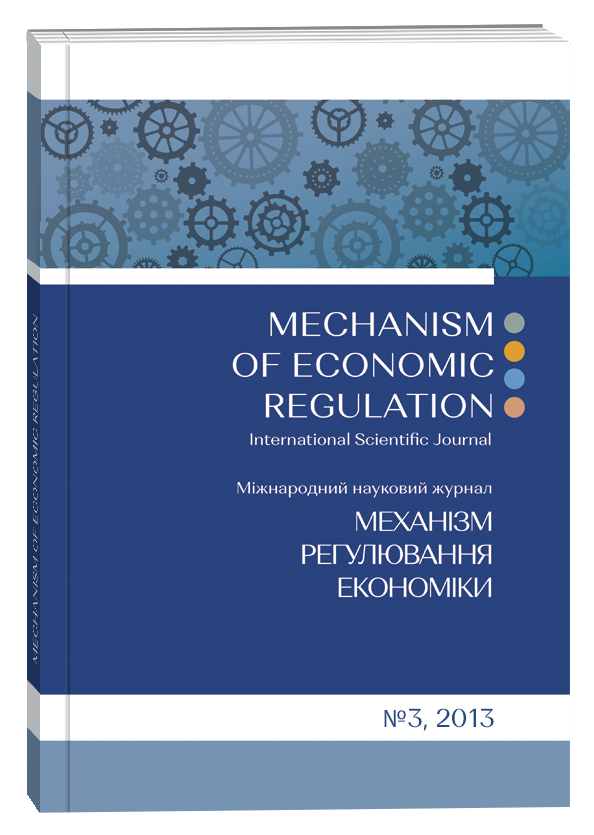SUSTAINABLE DEVELOPMENT: DEFINITIONS, PRINCIPLES, POLICIES
Abstract
The paper investigates the concept of sustainable development from the neoclassical and ecological economics point of view. Different definitions of sustainability are considered and deep analysis is done in that area. Exactly what is it that is supposed to be sustained in “sustainable” development? Two broad answers have been given. First, utility should be sustained, say the neoclassical economists; that is, the utility of future generations is to be non-declining. The future should be at least as well off as the present in terms of its utility or happiness as experienced by itself. Second, physical throughput should be sustained say ecological economists. More exactly, the capacity of the ecosystem to sustain those flows is not to be run down. The future will be at least as well off as the present in terms of its access to biophysical resources and services supplied by the ecosystem. Author adopts the throughput definition and rejects the utility definition, for two reasons. First, utility is non-measurable. Second, and more importantly, even if utility were measurable it is still not something that we can bequeath to the future. Utility is an experience, not a thing. We cannot bequeath utility or happiness to future generations. We can leave them things, and to a lesser degree knowledge. Reducing poverty is indeed the basic goal of development, but it cannot be attained by growth for two reasons. First, because growth in GDP has begun to increase environmental and social costs faster than it increases production benefits. Such uneconomic growth makes us poorer, not richer.
References
Фейнман, Р. Характер физических законов / Р. Фейнман ; пер. с англ. – М. : НЦ ЭНАС, 2004. – 176 с.
Arber, W. (2000) «Genetic variation: molecular mechanism and impact on microbial evolution» FEMS Microbiology Review. (ELSEVIER), 24, 1–7.
Arber, W. (1978) Promotion and limitation of genetic exchange. Nobel Lecture. Stockholm: Nobel Committee, 11 p.
Classics in Environmental Studies: An Overview of Classic Texts in Environmental Studies. Editors: N. Nelissen, J. Van der Straaten, L. Klinkers. – The Hague, the Netherlands : International Books, 1997. 424 p.
Dawkins, R. (1989) The selfish gene. – Oxford : Oxford University Press, 337 p.
Demin, А. I. (2011) Dualism paradigm: space – time, information – energy. М. : Publishing house LKI, 320 p (In Russian)
The Economics of Ecosystems and Biodiversity in National and International Policymaking Edited by Patrick ten Brink. – London, Washington : Earthscan, 2011. – 494 рp.
Efroimson, V. P. (2004) Genetics of ethics and aesthetics. – М. : Tidex Co, 304 p. (In Russian)
Faber, M. (1991) Evolution in biology, physics and economics. The book: Evolutionary theories of economic and technological change: present status and future prospects. – Manchester : Harwood Academic Publishers, 58–87.
Kim, S. K. at al (1980) «Energy intensity of the Japanese economic activities in 1975 and analyses of energy flow through the industries». Earth Sciens. – Nagoya, Japan : Nagoya University, – Vol. 28. – P. 2–28.
Kostas, B. (2011) «Sustainability and externalities: is the internalization of externalities a sufficient condition for sustainability?» Ecological Economics. – Volume 70. – Issue 10. – P. 1703–1706.
Köhn, J. (1996) Hierarchy and velocity of systems. What makes a development sustainable? / J. Köhn. – Rostock : Rostock University. – 76 p.
Leontief, W. (1997) Input-output economics/ W. Leontief. – Moscow: economics. – 479p (in Russian)
Markandya, A. at al. (2002) Dictionary of Environmental Economics. – London : Earthscan Publication Ltd. – 196 p.
Methods of environmental costs assessment / Edited by L. Melnyk; O. Karintseva. – Sumy: University Book, 2004. – 288 p. (In Ukrainian)
Nagai, T. (1984) «Science assessment of fusion for plant» Earth Sciens. – Nagoya, Japan : Nagoya University. – vol. 32. – P. 2–48.
Melnyk, L. at al. (2010) «Economic evaluation of and accounting in regional planning» Economics of ecosystams and biodicarsity: potentials and perspectives for countries of Northern Eurasia. – Moskow: Publishing house of the Centre for Wild Nature. – P. 41–48.
Nagai, T., Shimazy, Y. (1984) «Science assessment of fusion for plant» Earth Sciens. – Nagoya, Japan : Nagoya University. – vol. 32. – P. 2–48.
Odum, H. (1996) Environmental accounting : emergy and environmental decision making. – New York : John Wiley & Sons, INC. – 370 p.
Odum, H. T., Odum, E. C. (1976) Energy basis for man and nature. – NY : MC Graw – Hill Book Company. – 380 p.
Philosophic encyclopedic dictionary. – М. : ИНФРА, 2003. – 576 с. (In Russian)
Philosophic encyclopedic dictionary / V. І. Shynkaruk – К. : Abris, 2002. – 744 с. (in Ukrainian).
Sustainable development / Editors: B. Nath, L. Hens, D. Devuyst. – Brussels : VUB-PRESS, 1996. – 366 p.
The Economics of ecosystems and biodiversity in national and international policymaking / Edited by Patrick ten Brink. – London, Washington : Earthscan, 2011. – 494 р.
Van den Bergh Jeroen C. J. M. (2010) «Externality or sustainability economics?» Ecological Economics. – Volume 69. – Issue 11. – P. 2047–2052.


